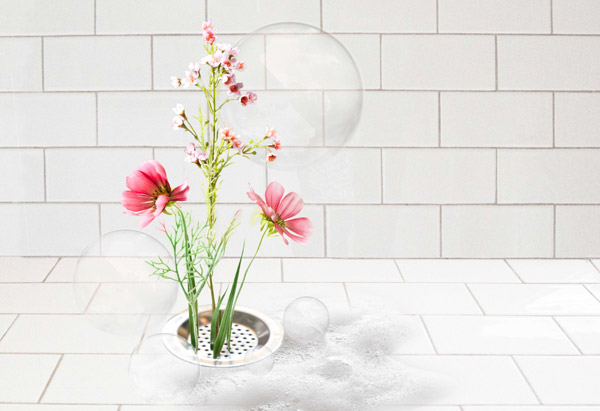Clean Your Home Without Compromising Your Health
Many of the products we use to keep our home spick-and-span have a dirty secret: toxic chemicals. Here's how to avoid them.

Photo: Ann Cutting
When we haul out the mop and bucket, we want to conquer grit, grime, and the germs they carry. But the virtue of scrubbing is marred by a nasty reality: Skin irritation, asthma, fertility disorders, and cancer have all been linked to chemicals in conventional cleaners, which also pollute our waterways and harm the environment.
"Many mainstream cleaning products contain unnecessarily hazardous ingredients," Rebecca Sutton, PhD, a senior scientist with the Environmental Working Group, says. For instance, petroleum distillates, found in kitchen and furniture cleaners, are derived from oil sources and can cause damage to the nervous system and lungs. Phosphates, an ingredient still found in some dishwashing detergents, can increase algae growth in waterways, robbing aquatic life of oxygen. Triclosan, common in antibacterial products, may disrupt thyroid function.
Some products have the potential to harm us while we use them; others leave pernicious fumes that linger. One EPA study found that organic air pollution was two to five times higher indoors than outside, thanks in part to cleaning-spray vapors and disinfectant fumes. According to the American Thoracic Society, using conventional cleaners even once a week may increase the risk of developing adult asthma.
And while there are many indications that antimicrobial household products (which may be labeled "antibacterial" or simply "disinfectant") can harm the environment, "there's no evidence that they provide any extra protection from germs," Sutton says.
If you want to balance a cleaner home with a greener planet, you could roll up your sleeves and DIY (the Web abounds with recipes that mix baking soda and vinegar or lemon juice with plenty of elbow grease). Or you can buy a household cleaner that's eco-friendly. Long considered the wimpy kid sister to conventional cleaners, these green products have gotten stronger in recent years. Companies are using new technology to develop more effective plant-based cleaning agents in lieu of hazardous chemicals.
As you compare packaging, ignore claims like "natural" or "eco-friendly" which aren't regulated, and instead look for third-party eco-labels, like Green Seal and EcoLogo, and the EPA's Design for the Environment. Phosphate-free, chlorine-free, and petroleum-distillates-free are all great claims, though if cramming chemistry isn't your thing, you can check out GoodGuide.com, which rates cleaning supplies on their health, environmental, and social impacts.
More on Green Living:
"Many mainstream cleaning products contain unnecessarily hazardous ingredients," Rebecca Sutton, PhD, a senior scientist with the Environmental Working Group, says. For instance, petroleum distillates, found in kitchen and furniture cleaners, are derived from oil sources and can cause damage to the nervous system and lungs. Phosphates, an ingredient still found in some dishwashing detergents, can increase algae growth in waterways, robbing aquatic life of oxygen. Triclosan, common in antibacterial products, may disrupt thyroid function.
Some products have the potential to harm us while we use them; others leave pernicious fumes that linger. One EPA study found that organic air pollution was two to five times higher indoors than outside, thanks in part to cleaning-spray vapors and disinfectant fumes. According to the American Thoracic Society, using conventional cleaners even once a week may increase the risk of developing adult asthma.
And while there are many indications that antimicrobial household products (which may be labeled "antibacterial" or simply "disinfectant") can harm the environment, "there's no evidence that they provide any extra protection from germs," Sutton says.
If you want to balance a cleaner home with a greener planet, you could roll up your sleeves and DIY (the Web abounds with recipes that mix baking soda and vinegar or lemon juice with plenty of elbow grease). Or you can buy a household cleaner that's eco-friendly. Long considered the wimpy kid sister to conventional cleaners, these green products have gotten stronger in recent years. Companies are using new technology to develop more effective plant-based cleaning agents in lieu of hazardous chemicals.
As you compare packaging, ignore claims like "natural" or "eco-friendly" which aren't regulated, and instead look for third-party eco-labels, like Green Seal and EcoLogo, and the EPA's Design for the Environment. Phosphate-free, chlorine-free, and petroleum-distillates-free are all great claims, though if cramming chemistry isn't your thing, you can check out GoodGuide.com, which rates cleaning supplies on their health, environmental, and social impacts.
More on Green Living:



